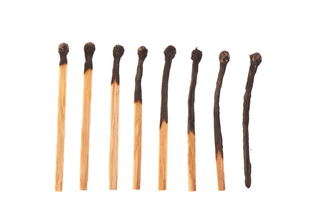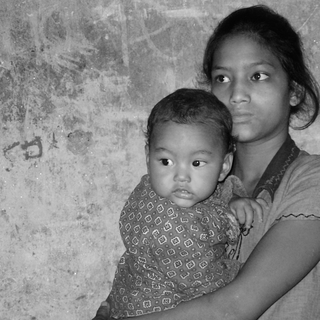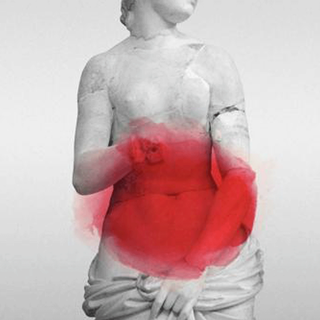
WHO Retracts Stance on Burnout as a Medical Condition, Calls it an ‘Occupational Phenomenon’
It’s not just a millennial snowflake issue anymore.

A day after the World Health Organization announced that it had recognized burnout as a legitimate medical diagnosis, it revised its stance and called burnout an occupational phenomenon. This is the first time it’s being directly linked in the WHO’s classification of diseases as a work hazard.
The WHO has described it as a syndrome resulting from chronic workplace stress that has not been successfully managed, specifying that it can’t be applied to describe experiences in other areas of life. Its symptoms include feeling of energy depletion or exhaustion, increased mental distance from one’s job, feelings of negativism or cynicism related to one’s job or reduced professional efficiency.
The WHO also said it plans to develop “evidence-based” guidelines for mental well-being in the workplace. Its member nations, of which India is also a part, are set to implement the revisions to the International Classification of Diseases by 2022.
This comes at a time when the term ‘burnout,’ has been applied to the malaise of an entire generation, millennials to be specific. The idea has been rejected and criticized for being a “fatigue colored by entitlement.”
But various studies, time and again, in India and worldwide, are proof that WHO’s recognition of burnout is a step in the right direction.
Take the 2016 ManpowerGroup survey, for instance. It revealed that India’s millennial workforce had the longest working hours in the world—52 hours per week.
Related on The Swaddle:
Phone Stress Is a Real Thing and It Might Be Shortening Our Lives
In another survey, over 80% of India’s millennials said that they worked harder than their bosses, as their work hours stretched longer than their managers’.
In a US-based survey, more than 4 in 10 millennials considered themselves as “work martyrs—dedicated, indispensable, and racked with guilt if they take time off.”
The same survey also revealed that more than half of millennials want to be seen that way despite overwhelming evidence suggesting that a workweek of more than 40 hours leads to a dip in the productivity. But, “…many professionals heralded long workweeks as a measure of their effectiveness.”
What’s worse? Millennials felt nervous when requesting time off from their employers, compared to just 14% of Gen X-ers who felt that way, and only 6% of baby boomers aged 55 and up having these feelings. “Feelings of shame, guilt, or even fear were common,” this report states.
Moreover, 48% of millennials didn’t use the full amount of paid time off they received each year, and about half of Americans—53% — haven’t taken a vacation in the past year.
Related on The Swaddle:
We Judge Other People for Being Stressed Out
Therfore, it’s only natural that they are going to feel burned out.
This takes us to the very relatable and much-shared Buzzfeed News piece titled ‘How Millennials Became the Burnout Generation,’ by Anne Helen Petersen in which she writes, “…Why can’t I get this mundane stuff done? Because I’m burned out. Why am I burned out? Because I’ve internalized the idea that I should be working all the time. Why have I internalized that idea? Because everything and everyone in my life has reinforced it — explicitly and implicitly — since I was young. Life has always been hard, but many millennials are unequipped to deal with the particular ways in which it’s become hard for us.”
That may be true. The economy may have improved markedly in recent years, but it hasn’t made life any easy for the millennials.
Young people in the workforce have record levels of student loan debt. Per this Mint report, the percentage of defaults on education loans in India rose to about 9% as of March 2018 from 7.3% in March 2016. Millennials are also less likely than previous generations to earn more than their parents, according to a Stanford University report.
To get there, they’ve been internalizing the idea that they need to be working all the time, but it’s not their fault.
“The way millennials were raised may play into their always-on mindset, too,” Bob Kelleher, a Boston-based employee engagement consultant and author told Boston Globe. “Many of them were highly scheduled, going to soccer camps, enrolling in SAT prep courses, and competing on the debate team in order to get into a good college,” he added.
This has also led them into believing that being average is no longer enough; they have to always be achieving. Therefore, the WHO is now saying that while spending another hour at work may not seem like a big deal, employees need to realize that once they do start sacrificing the hours of sleep, relaxation, and enjoyment they need, their health can start to decline and every hour they spend on the job can gradually become less valuable.
So, if you’re an employee, it’s time to take burnout seriously. It may not be classified as a medical condition yet, but that doesn’t mean we stop taking it seriously.
Anubhuti Matta is an associate editor with The Swaddle. When not at work, she's busy pursuing kathak, reading books on and by women in the Middle East or making dresses out of Indian prints.
Related


India is Home to More Stunted Children Than Any Other Country, Study Says
